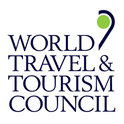WTTC's Blueprint For New Tourism Calls On Government and Industry to Make Significant Long Term Commitments
The World Travel & Tourism Council (WTTC) today revealed its Blueprint for New Tourism, which issues a call to action for both government and the industry to make several long-term commitments to ensure the prosperity of Travel & Tourism - one of the world's largest industries, responsible for 200m jobs and over 10% of global GDP.
The Blueprint for New Tourism contains a new vision for Travel & Tourism and strategies to guide its recovery from a series of unprecedented set backs over the past few years, in the form of terrorism, war, economic slowdown and SARS.
Click here to see photos of the launch in New York City, October 7, 2003
Creation of the Blueprint was approved by the main resolution at the close of the last Global Travel & Tourism summit that took place in May in Vilamoura, Portugal, which was attended by over 500 of the most influential people in the industry.
Jean-Claude Baumgarten, President, said: "There is now a new consciousness amongst governments that they cannot leave the growth of Travel & Tourism to chance. What is needed is a new vision and strategy involving a partnership between all stakeholders - public and private to turn future challenges into opportunities. The Blueprint for New Tourism spells out how that can be achieved."
WTTC's latest projection for the industry is that a quarter of a billion people will work in Travel & Tourism worldwide by the end of the decade, with the prospect of sustainable growth in to the future. This projection is supported by WTTC's latest economic research that indicates consistent growth, at 4.6% pa, over the coming decade.
In order to meet the challenges ahead and achieve the vision, the Blueprint establishes three fundamental conditions:
- Governments must recognize Travel & Tourism as a top priority
- Business must balance economics with people, culture and environment
- All parties must share the pursuit of long-term growth and prosperity
Governments must recognize Travel & Tourism as a top priority To meet the first condition, governments must:
- Elevate Travel & Tourism as an issue to the top level of policy making
- Create a competitive business environment
- Ensure that quality statistics and data feed into policy and decision-making
- Invest in developing the appropriate human capital
- Liberalise trade, transport, communications and investment
- Build confidence in safety and security
- Promote product diversification that spreads demand
- Plan for sustainable tourism growth, in keeping with cultures and character
- Invest in new technology, such as satellite navigation systems
Business must balance economics with people, culture and environment To meet the second condition, the industry must:
- Expand markets while protecting natural resources, local heritage and lifestyles
- Develop people to narrow the gap between the 'haves' and 'have-nots'
- Provide traditional tourism products sensitively
- Reduce seasonality and increase yields with imaginative new products
- Improve quality, value and choice
- Agree and implement quality standards at all levels
- Transfer skills and best practice throughout the industry
- Increase the sophistication of information, to make better business decisions
- Communicate more broadly and more effectively
All parties must share the pursuit of long-term growth and prosperity To meet the third condition, all the main stakeholders must:
- Ally best practice in tourism with government policy
- Prepare sustainable master plans for entire destinations
- Create locally driven processes for continuous stakeholder consultation
- Restructure national tourism boards
- Set environmental policy goals that can be met
- Develop and deploy skills effectively
- Collaborate on information requirements
- Collaborate on security
- Develop confidence on all sides
Jean-Claude Baumgarten concluded: "New Tourism requires a much stronger partnership between the private sector and public authorities. It is geared to delivering commercially successful products - but in a way that ensures benefits for everyone. New Tourism looks beyond short-term considerations. It focuses on benefits not only for people who travel, but also for people in the communities they visit, and for their respective natural, social and cultural environments."
Luis Correia da Silva, Portugal's Secretary of State for Tourism, said: "The strategic importance of Travel & Tourism to our economy can not be underestimated. I am fully supportive of the Blueprint for New Tourism and am delighted to have the opportunity of talking to so many of the industry's top people about how we can respond to the challenge."
About The World Travel & Tourism Council - The WTTC is the forum for business leaders in the Travel & Tourism industry. With Chief Executives of some one hundred of the world's leading Travel & Tourism companies in membership, WTTC has a unique mandate and overview on all matters related to Travel & Tourism. WTTC works to raise awareness of Travel & Tourism as one of the world's largest industries, employing 200 million people and generating over 10% of world GDP. For more information, please call David Tarsh on +44 7770 816 070 or Jo Fox-Mills on +44 (0) 20 7481 8007 or visit www.WTTC.org.
David Tarsh
+44 (0) 20 7602 5262
WTTC
